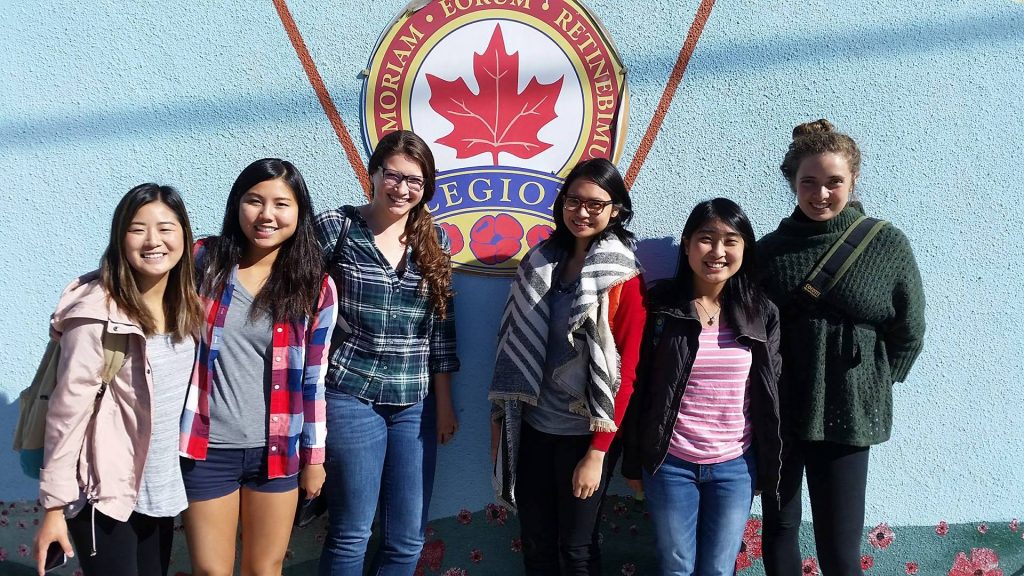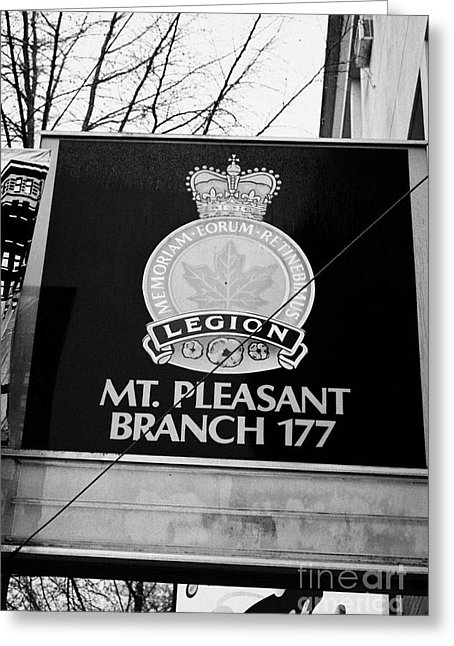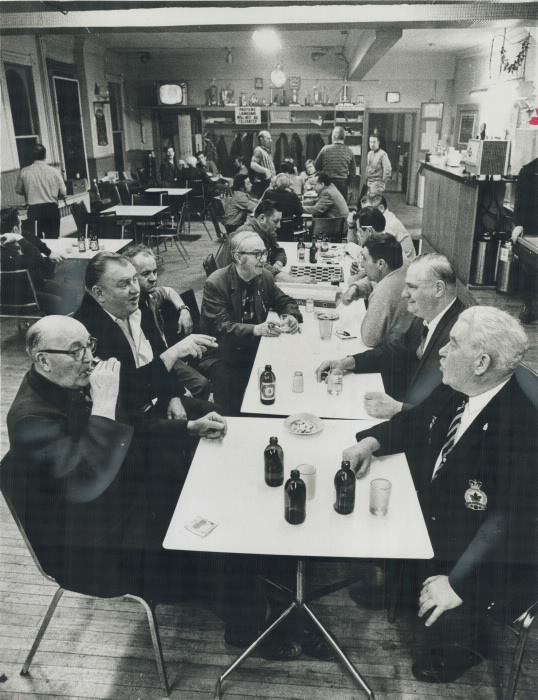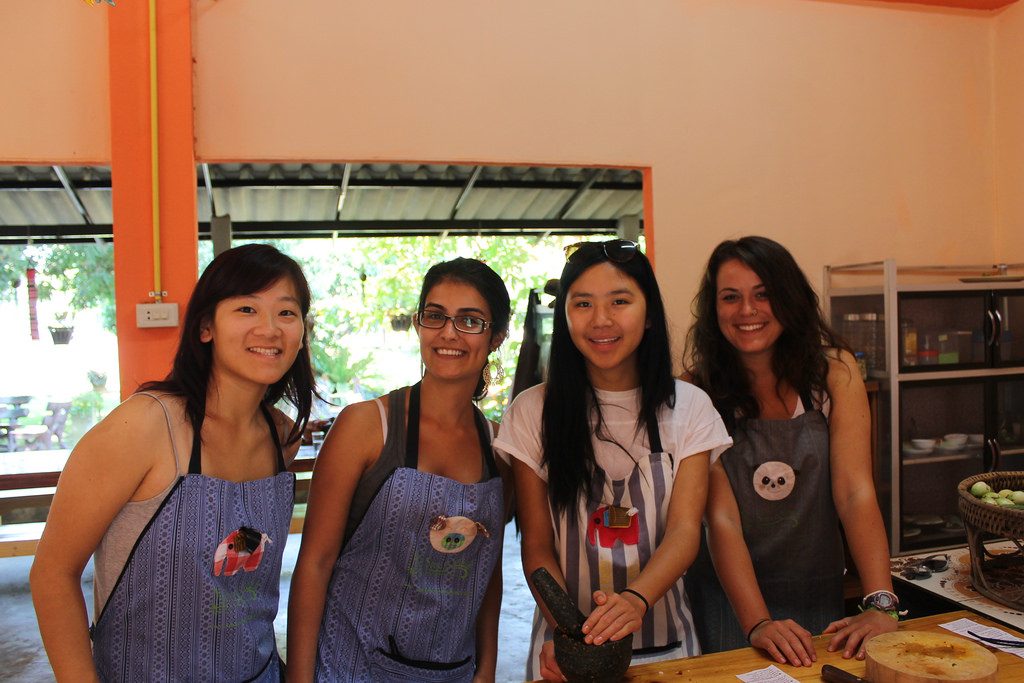
Group Introductions (left to right)
Joanne Wong
- Global Resource Systems Major – Global Health
- Interests: biking, playing guitar, music, community, graphic design and typography, and trying new things!
Rachel Leung
- Food Nutrition & Health Major
- Interests: Plant-based baking and cooking, food photography, scenic hikes and bike rides, scrapbooking, entrepreneurship
Jenny Sinclair
- Global Resource Systems Major – Sustainable Food Systems and Communities
- Interests: cooking, travelling, playing guitar, and reading endless cookbooks and food magazines!
Carmina Paterno
- Food Science Major
- Interests: Baking, cake decorating, hikes and kickboxing, wine science and product development
Winnie Kwan
- Global Resource Systems Major – Sustainable Food Systems
- Interests: gardening, creative writing, reading, swimming, dragon boating
Olivia Shaw
- Global Resource Systems Major – Food Systems and Community Engagement
- Interests: vocal and fiddle improvisation, dance, wild food foraging, drawing, adventure-ing!
Our group expectations for the project
We are looking forward to learning more about the Royal Canadian Legion and how it supports the local community. Through our project, we hope to identify potential ways in which the Mt. Pleasant Legion can be better integrated into the local community, potentially by encouraging new community partnerships and relationships. Before proceeding, we will need to learn the extent of the Mt. Pleasant Legion’s involvement in the local food community, and if they have an interest in expanding their involvement. Our reasons for choosing this project came both from personal interests and wanting to explore the unknown. Many of us have never been to or heard of the Legions, which made us curious to learn more about this community and project. Overall, our goal is to develop a better understanding of the Vancouver food system through assessing the smaller scale Legion food system.
 Photo credit: FineArtAmerica
Photo credit: FineArtAmerica
Our project objectives and community organization
Legions are Canadian organizations that provide essential services to veterans, their families, and local communities, while commemorating the sacrifices men and women made for our country. Legions hold space for an aging community of members that are rich with stories of Vancouver and beyond. They maintain their site as a communal place where veterans, other members of the community, and visitors can gather, play social games, listen to live music, participate in meat draws, and connect with each other. The Legion supports youth, health, and education programs in the community as well as provides food vouchers to veterans and bursaries to students. This long-standing organization is an asset to the community for its diversity of services, its long legacy of support and for many other facets we have yet to discover. As such, it presents itself as a great starting point around which an asset based approach of community development can be formulated, focusing on the positive impacts of the Legion on the community and how these can be developed further.
 Photo credit: Toronto Public Library
Photo credit: Toronto Public Library
As LFS students hoping to increase food assets in the Mount Pleasant community, we aim to assess the state of the Legion’s food system and understand what the needs of its stakeholders are. Through site visits and interviews, questions concerning kitchen capacity, kitchen use, and the existence of on-site food services will be addressed. This research falls in line with the city of Vancouver’s goal to improve people’s access to healthy, adequate, and culturally appropriate food. Unfortunately, certain demographics experience disproportionately higher food insecurity compared to others, and therefore cannot access the food they require. This is why we will critically analyze existing infrastructure and community stakeholder needs with a food justice perspective, with the goal of making the food assets currently found at the Legion more accessible to the community. If the Legion does have an underused kitchen, we aim to identify potential uses for the facilities and to optimize and expand community services in line with the wishes of the branch. If the Mt. Pleasant Legion does not have a kitchen for us focus on, we will shift our attention to the communal space and food assets available, and how we can promote the Legion’s current services to potentially build more community.

Building community through shared kitchen spaces
Photo credit: ironypoisoning via Visual hunt / CC BY-SA
Our first impressions of the process to date
From the course descriptions of the Legion projects, our understanding is that the project is relatively open-ended. The direction each Legion would like to proceed towards will differ by branch, depending on what assets they have available and what they feel comfortable with. Like Sirolli said in his TED talk, our group agreed that we should “shut up and listen” to the Mt. Pleasant Legion’s wishes, goals, and desires before planning how our group can best assist them in meeting their needs. We have speculations and possible initiative ideas, but they could all be worthless if our branch is uninterested in pursuing them.
Sirolli’s TED talk can also be accessed via the following link: https://www.youtube.com/watch?v=chXsLtHqfdM
Many members from our group did not know what to expect before walking into the West Point Grey Legion, but what we did see was not what we had anticipated. The old-timey pub and pool gathering space of the branch was very quaint, and we quickly grew curious to check out the Mt. Pleasant branch and experience the Legion that we would be working with!
Our visit to the West Point Grey Legion initially confused our group’s understanding of the proposal for our project, but it also helped cement the concept of using Sirolli’s theme as our guide, and opening our eyes to the needs of the community. It also further introduced us to the society’s food system, and allowed us to see through a food justice lens in order to carefully perceive and identify the existing obstacles and constraints the community’s food system presents.
Going into this project, we had very few preconceived ideas of what the entirety of the process would resemble. We hope that by focusing on the desires of our Mt. Pleasant Legion branch we will be able to recognize the value of the community’s input and be sensitive to their needs and wishes. As we begin to work with the Mt. Pleasant Legion, we look forward to approaching the branch with respect and openness, to build a culture of trust and collaboration so that we can assist in meeting the community’s needs based on the current foundation that they have created.